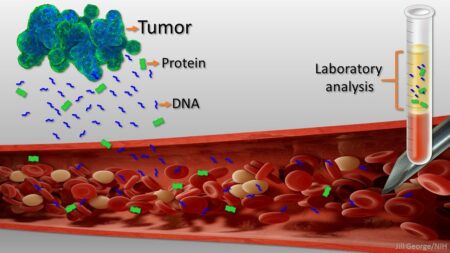THE University of New South Wales says that Australia is lagging in vital cancer detection technology and practice.
Despite the benefits, liquid biopsies are still not a standard clinical tool in Australia. They should be because Australia as a vast country with sparsely populated and serviced regional and remote areas is where liquid biopsies in cancer detection and management can make a huge difference.
According to the University of NSW’s Associate Prof Therese Becker, there are several barriers to be overcome before liquid biopsies become the norm in Australia. These barriers include refining the liquid biopsy technology, collecting clinical trial data on a large scale, and securing buy-in from clinicians and patients.
A solid tumour biopsy can be painful, invasive and sometimes not even possible depending on the location of the tumour.
“If you’re in a rural area and you need to have a biopsy, you need to travel to a major centre because essentially what you’re having is an invasive procedure,” said Dr John Lock, who is a cancer researcher at UNSW Medicine & Health and the Ingham Institute for Applied Medical Research.
What if you could get the same information about your tumour with a simple blood draw? That’s where the liquid biopsy comes in.
The liquid biopsy is performed using blood and other bodily fluids. Cancers release entities such as genetic material (DNA) and tumour cells into the blood stream, which are called circulating tumour DNA and circulating tumour cells.
“It transforms the experience for the patient. A liquid biopsy means that essentially you go to your GP and the sample travels, not you,” Dr Lock said.
Liquid biopsies can also serve different purposes. Liquid biopsy approaches are being developed to be part of early screening of cancers, including multi-cancer screening blood tests. The liquid biopsy can also allow monitoring of a patient’s cancer over time, which is what the University of NSW research focuses on.
Cancers are complex to treat because they evolve over time. It is not feasible to perform solid biopsies regularly to track a cancer’s progression, particularly if it has spread to distant organs or the bone.
“We know that a cancer changes. A person gets diagnosed with cancer and then gets treated with different therapies. A year or two years down the track, that person’s cancer may have changed dramatically,” Assoc Prof Becker said.
“If we rely on solid biopsies, we lose visibility on how the cancer has changed. We lose track of it,” said Dr Lock.
“Liquid biopsy is getting more and more embedded in clinical practice overseas, but Australia is still behind. The next few years will be critical to move liquid biopsies from bench to bedside in Australia”, Assoc Prof Becker said.
